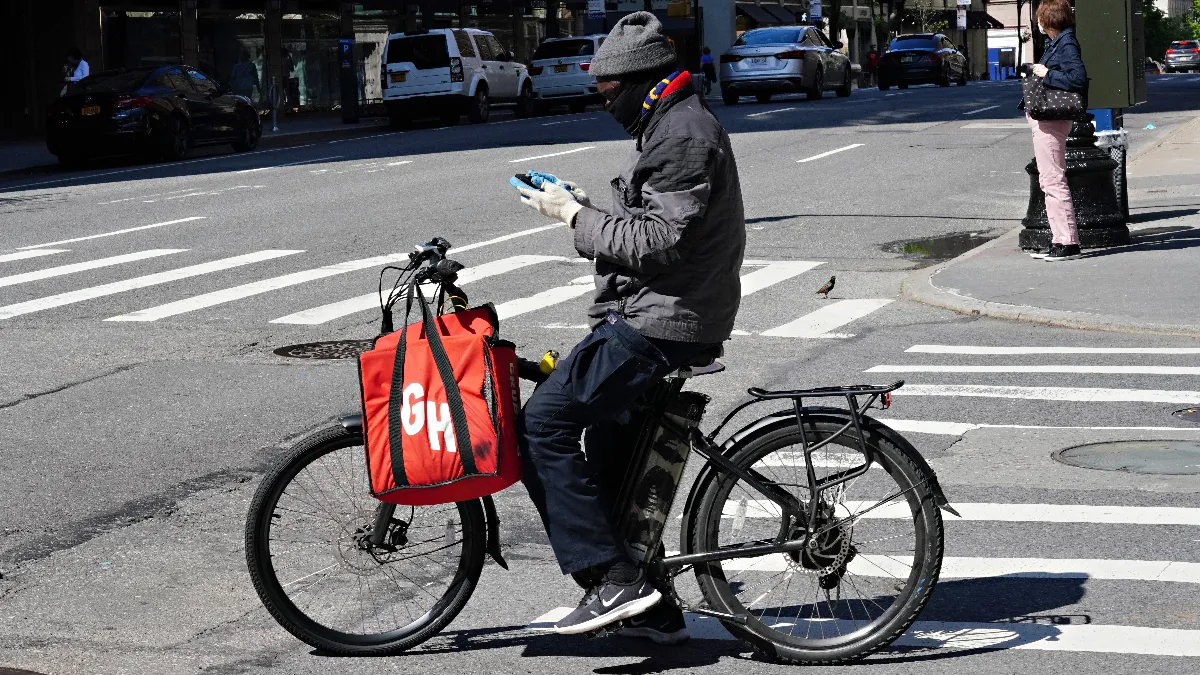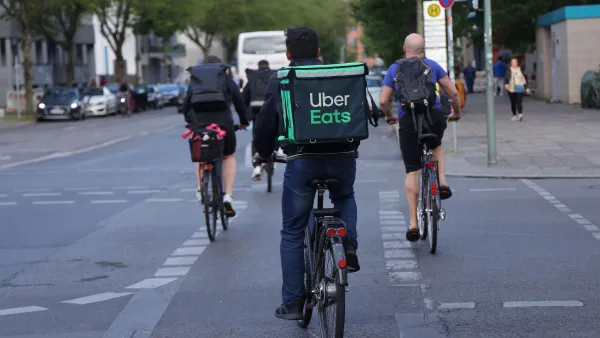Dive Brief:
- The New York City Council passed legislation this week to cap third-party delivery fees at 15% per order until Feb. 17, 2022, and will also cap all other fees at 5% per order. The legislation, along with four other bills focused on third-party delivery — including one barring non-partner listings — still await Mayor Bill de Blasio's signature.
- The third bill would prohibit third-party delivery companies from charging restaurants for listing phone orders that didn't result in a transaction. The fourth bill would require aggregators to share information related to orders placed through their platforms if that information is requested by a restaurant, and the fifth would require delivery firms to list restaurants' direct phone number if they include any phone number in the listing.
- The delivery fee cap included in this bill package is more lenient than legislation proposed in February 2020, even before the pressure of the pandemic, which called for a 10% cap on delivery commission fees.
Dive Insight:
New York City's delivery fee cap extension comes on the heels of San Francisco's permanent delivery fee cap of 15%, which passed in June.
Other cities across the country, including Los Angeles, Chicago, Seattle, Las Vegas, Washington, D.C., and Portland, Oregon, have also passed temporary delivery caps throughout the past year and a half to protect restaurants struggling with the economic fallout of COVID-19. With both San Francisco and New York City — two of the largest restaurant markets in the country — doubling down on delivery fee caps, the move could drive additional municipalities to put similar protections in place for restaurant operators long-term. Still, New York City's delivery cap isn't permanent, bucking expectations.
Delivery fee caps have been a lifeline for some restaurants. One operator in Portland, Oregon, told Restaurant Business, for example, that the city's 10% cap has been a "tremendous" support and even increased delivery orders, despite partner aggregator DoorDash's implementation of a $3 "Portland Fee" in response to the cap.
Still, there will be challenges. Delivery companies have pushed back on caps, with DoorDash claiming they decrease order volumes and lead to reduced income for its drivers. The Protect App-Based Drivers & Services Coalition also claims fee caps yield price increases per order for consumers.
DoorDash and Grubhub have already filed a lawsuit against San Francisco's permanent delivery cap, calling it "unconstitutional" and "harmful." Results from this suit could have major implications across the country for cities mulling similar bills.
In the meantime, for New York City, the delivery fee cap extension and sister bills come as COVID-19 rates climb and regulations return. Mayor Bill de Blasio is expected to instate an updated mask policy next week and though dining rooms are set to remain open, the rapidly increasing Delta variant could eventually cause another round of restrictions. At the very least, rising cases could cause trepidation for diners contemplating a return to dining out. This would likely force restaurants to depend more heavily on delivery again. According to Seven Rooms, third-party delivery platforms take a 30% commission from restaurants on average, so this could pose a major challenge for still-recovering restaurants in municipalities where a cap isn't in place.














